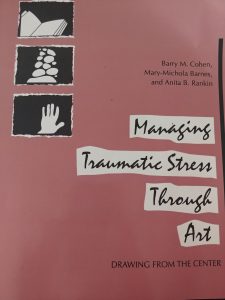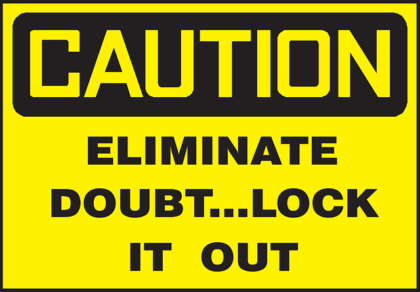“Doubter…” “Just like doubting Thomas…” I heard those types of statements enough. Doubt was bad. As in near blasphemy, you’ll-go-straight-to-hell bad. Doubt led to disbelief. Doubt came from questions. Therefore questions were bad. Doubt was worse. Disbelief… well, don’t think about it. And do not ever ask questions. Because questions lead to disbelief.
Questions, doubt, and disbelief loomed. Ignore the questions. Always have THE answers. Think in blacks and whites. Questions lurk in the gray areas. And questions lead you astray. They lead to disbelief. Don’t ask questions.
Where in the Bible is it written that we shouldn’t ask questions? The Bereans were praised for asking questions. Paul and David both indicated they had questions, and in David’s case, a LOT of questions. Job had questions. Yet all three are “good people” in the Bible. No one ever called David a doubter. They must have been reading from a different set of Psalms than me. And Job… I always kind of wondered how Job got away with questioning God like he did. He asked God some pretty hard, pretty accusing questions right to his face, if you will. I’ve never heard him referred to as a doubter.
Even Thomas, though he’s called a doubter now. We heard sermons about how Jesus rebuked him. However, in John 20, this is what happens:
26 Jesus came and stood among them and said, “Peace be with you.”
27 Then Jesus said to Thomas, “Put your finger here and look at My hands. Reach out your hand and put it into My side. Stop doubting and believe.”
Jesus made a special trip for Thomas. He invited him to touch the wounds, even to put his fingers in them. Yes, he tells Thomas to stop doubting, but he doesn’t rebuke him for having doubted. He simply tells him to stop doubting. Yes, he goes on to say, 29 … “Because you have seen Me, you have believed; blessed are those who have not seen and yet have believed.” Maybe that could be construed as a rebuke to some, but it seems like a very mild rebuke if it’s a rebuke at all. He doesn’t say “bad for you for doubting. Bad for you that you only believe now.” I don’t see that at all.
There are places in the gospels where Jesus says “oh ye of little faith.” True. Over time I’ve begun to see that as less of a rebuke. Maybe it was said with some humor. Or a sigh. Or maybe with a bit of irony. But it wasn’t something Jesus called the Pharisees… it was something he said to those closest to him, to the one who got out of the boat to walk on water, to the ones out on the lake with Jesus in the middle of the night in a storm, to those who’d just divided a few loaves and fish among five thousand and then picked up baskets full of leftovers. Sometimes it was the precursor to a miracle, and others it followed soon after one. And from a search in an online Bible, it appears that it may be something he said far fewer times than I thought from all the sermons on it that he must have said it. (Mt 6, 8, 14, 16, 17 and matching stories in the other gospels.) That’s just FIVE times. Five times in three years, or five times in 28 chapters. Including Peter sinking after he started walking on the water to Jesus. However, even if you want to take those five instances as rebuke of the disciples doubt, it still gives hope to us doubters… because Jesus obviously didn’t give up on them even when they did doubt. So there’s hope for us as well when we do, no matter what was yelled from our pulpits.
Doubt isn’t bad, and neither are questions. Both actually take faith. It takes faith (or absolute desperation) to ask questions about God without fearing the consequences. And neither leads to disbelief. Not really. But what about disbelief? Surely disbelief is bad. Except I’m not so sure in all cases it is. Sometimes we need disbelief to unbelieve some wrong things. Wrong things about God, the Bible, or even ourselves. And disbelief in those cases, as hard as it may be to accept, may even be a gift.
During the process of leaving my unhealthy church, I realized any God that was omnipotent and omnipresent wouldn’t be afraid of my questions. God is bigger than my doubts. And even before leaving, I came to understand that if truly “…neither death, nor life, nor angels, nor principalities, nor powers, nor things present, nor things to come, nor height, nor depth, nor any other creature, shall be able to separate us from the love of God, which is in Christ Jesus our Lord,” (Rom 8:38-39) and if really I was a creature, a person created by God, then even I couldn’t separate me from God’s love. Nothing I can do, no questions I ask, no doubts I encounter, will separate me from God’s love. Nothing. I may not see it, I may not feel it, I may not understand it, but it’s there nonetheless. It doesn’t stop even when I ask the questions that scare good Christians. And God already knows I have them. So I might as well ask.
********
Shop at our Amazon store! As an Amazon Influencer, this website earns from qualifying purchases.
 How does your breathing change in a moment of crisis? Does it become fast and shallow? Is it difficult or painful? Do you hold it in as if it is the last bit of air to ever pass through your lungs? First tightening into a knot, my chest shifts to rapid, shallow breaths, leaving little room for oxygen to pass in or out. This exercise is an opportunity to evaluate changes in the patterns of depth and duration of breaths through mindfulness techniques. After experimenting with various strokes and lines/squiggles, a wave pattern felt most natural and comfortable to me, though awkward at first. Closing my eyes made it easier to focus on my breath, getting evermore shallow as the five minutes seemed to go on for ten. Upon opening my eyes, I saw on paper the result of heading towards an anxiety attack and my inhalations increasing in number, but decreasing in duration. While this exercise shows that not every tool works efficiently for every person, the second part of this gave me the key to working on mindfulness through breathing.
How does your breathing change in a moment of crisis? Does it become fast and shallow? Is it difficult or painful? Do you hold it in as if it is the last bit of air to ever pass through your lungs? First tightening into a knot, my chest shifts to rapid, shallow breaths, leaving little room for oxygen to pass in or out. This exercise is an opportunity to evaluate changes in the patterns of depth and duration of breaths through mindfulness techniques. After experimenting with various strokes and lines/squiggles, a wave pattern felt most natural and comfortable to me, though awkward at first. Closing my eyes made it easier to focus on my breath, getting evermore shallow as the five minutes seemed to go on for ten. Upon opening my eyes, I saw on paper the result of heading towards an anxiety attack and my inhalations increasing in number, but decreasing in duration. While this exercise shows that not every tool works efficiently for every person, the second part of this gave me the key to working on mindfulness through breathing.

 Take a moment and allow your mind to drift off to a specific location or place where you have experienced comfort. Are you by a river or stream? In the forest? In a log cabin far away from any living soul? Are you reading a book or taking a long, hot bath? Is anyone there with you or are you by yourself?
Take a moment and allow your mind to drift off to a specific location or place where you have experienced comfort. Are you by a river or stream? In the forest? In a log cabin far away from any living soul? Are you reading a book or taking a long, hot bath? Is anyone there with you or are you by yourself? Have you ever experienced those therapy sessions where one simple phrase or question seems to blast a door wide open into the possibilities of individualized treatment that might actually work? Well, it was not my own session that accomplished this. It was my husband’s session when he told our therapist that I like to doodle and be creative and my therapist had an idea that changed everything for me in terms of personal growth and development. My therapist gave me a means of expression and processing that I had given up hope for through a book by entitled
Have you ever experienced those therapy sessions where one simple phrase or question seems to blast a door wide open into the possibilities of individualized treatment that might actually work? Well, it was not my own session that accomplished this. It was my husband’s session when he told our therapist that I like to doodle and be creative and my therapist had an idea that changed everything for me in terms of personal growth and development. My therapist gave me a means of expression and processing that I had given up hope for through a book by entitled 

